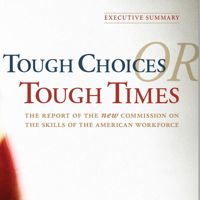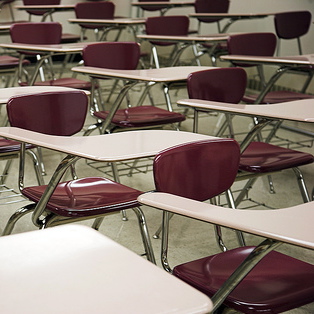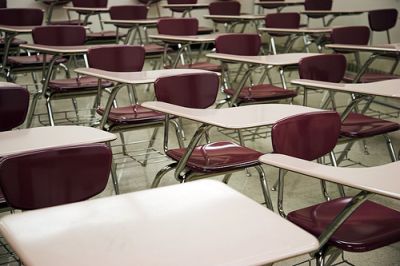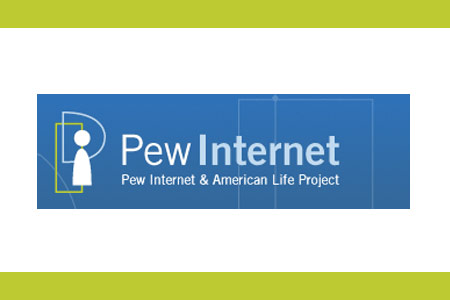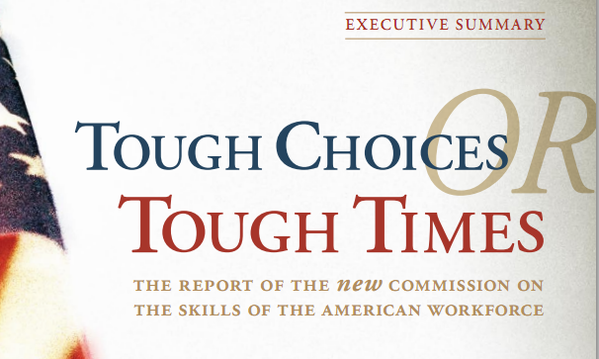
Tough Choices or Tough Times
On December 14, 2006, the New Commission on the Skills of the American Workforce, unveiled a report which should keep educators and policy-makers talking for months to come. Tough Choices or Tough Times, offers both a sober assessment of the challenge (Tough Times) and a radical proposal for reform of our educational system (Tough Choices). Executive Report 1.9MB pdf
Already the report is drawing both praise and heavy criticism. See: “U.S. Urged to Reinvent Its Schools” Education Week December 20, 2006. More 35kb pdf
The report assesses the demands of the information age / global economy against the current trends in American education. In our efforts to shore up the basic competencies of our students we have sacrificed creativity. Our schools have been taken over by the “test-prep” mentality. Typically that involves putting our student through relentless repetition of formulaic approaches to finding “the right answer.” More
As Washington considers the reauthorization of NCLB, I hope someone asks the question, “Why are we training our students to perform routine tasks, when routine work is increasingly done by machines and low-wage labor?”
As Tough Choices or Tough Times states, “A swiftly rising number of American workers at every skill level are in direct competition with workers in every corner of the globe. …If someone can figure out the algorithm for a routine job, chances are that it is economic to automate it. Many good well-paying, middle-class jobs involve routine work of this kind and are rapidly being automated.
…The best employers the world over will be looking for the most competent, most creative, and most innovative people on the face of the earth and will be willing to pay them top dollar for their services. This will be true not just for the top professionals and managers, but up and down the length and breadth of the workforce.
…Strong skills in English, mathematic: technology and science, as well as literature, history, and the arts will be essential for many; beyond this, candidates will have to be comfortable with ideas and abstractions, good at both analysis and synthesis, creative and innovative, self-disciplined and well organized, able to learn very quickly and work well as a member of a team and have the flexibility to adapt quickly to frequent changes in the labor market as the shifts in the economy become ever faster and more dramatic.”
To prepare our students to lead productive and fulfilling lives, they will need both core competencies and opportunities to explore creative solutions that are “outside the box.” Let’s not forget “synthesis” – one of Bloom’s higher-order thinking skills. It’s been defined as: “Creatively or divergently applying prior knowledge and skills to produce a new or original whole.”
We can’t blame teachers for abandoning project-based learning when they get the message that we have to get “the scores up.” It’s time to refine our thinking about educational accountability. We will need to produce a new generation of students with both solid skills and the ability to apply them in new and creative ways.
As the report concludes, “Creativity, innovation, and flexibility will not be the special province of an elite. It will be demanded of virtually everyone who is making a decent living, from graphic artists to assembly line workers, from insurance brokers to home builders.”
See new post “Teaching innovation in routine schools? Part II”
